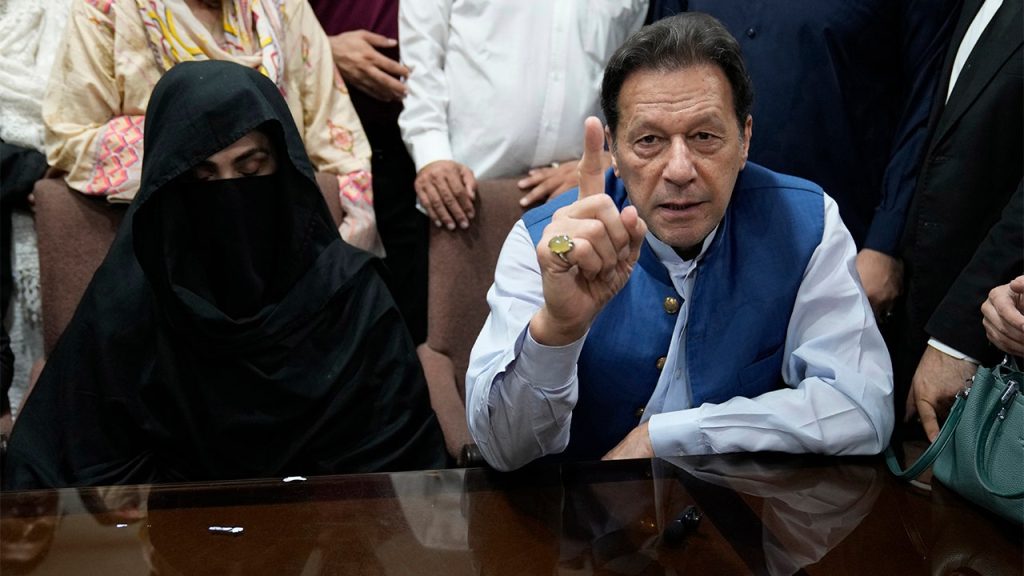The political landscape of Pakistan continues to be dominated by the ongoing legal battles of former Prime Minister Imran Khan. On Friday, a Pakistani court delivered another blow to the embattled leader, sentencing him and his wife, Bushra Bibi, to 14 and 7 years in prison, respectively, on corruption charges. The verdict stems from accusations that the couple accepted a land gift from a real estate tycoon, Malik Riaz, in return for allowing Riaz to launder money and settle fines with the laundered funds. This money, amounting to £190 million (approximately $240 million), had been returned to Pakistan by British authorities in 2022. Khan, who has been imprisoned since 2023, vehemently denies the charges, asserting that they are part of a politically motivated conspiracy to prevent his return to power.
This latest conviction adds to a growing list of legal challenges facing the former prime minister. He has already been sentenced in three separate cases, involving charges of corruption, revealing official secrets, and violating marriage laws. Under Pakistani law, these sentences are to be served concurrently, with the longest sentence determining his total prison term. Khan’s imprisonment has sparked protests and rallies across the country, with supporters demanding his release and denouncing the government. His legal team maintains his innocence and intends to challenge the verdict in higher courts.
The case against Khan and Bibi revolves around the alleged exchange of favors with Malik Riaz. Prosecutors contend that Riaz, facing fines in a separate case, was permitted by Khan to use the laundered £190 million to settle his dues. This money, originally deposited with the national exchequer, was allegedly used for Riaz’s benefit in exchange for the land gifted to the Khan couple. The prosecution also alleges that Khan used some of the illicit funds to construct a lavish house in Lahore, the origin of which he cannot explain.
Khan’s supporters, including lawmakers from his Pakistan Tehreek-e-Insaf (PTI) party, have vehemently rejected the verdict, staging protests and rallies in Islamabad and other cities. They claim the case is fabricated and politically motivated, designed to sideline Khan from the political arena. PTI leaders have vowed to appeal the decision in higher courts, hoping to overturn the conviction. The party maintains that Khan is a victim of a political witch-hunt, aimed at silencing his criticism of the current government.
The timing of this verdict comes amidst ongoing political tensions in Pakistan. Khan’s PTI party recently engaged in talks with the government of Prime Minister Shehbaz Sharif, demanding the release of political detainees, including Khan and other PTI leaders. The PTI alleges that the 2024 election, which brought Sharif to power, was rigged. This latest conviction further complicates the already strained relationship between the PTI and the government, adding fuel to the ongoing political turmoil.
The implications of this verdict extend beyond Khan’s personal fate. It further polarizes the political landscape, exacerbating the existing tensions between the PTI and the ruling coalition. The ongoing legal battles and accusations of political persecution cast a shadow over Pakistan’s democratic processes and raise concerns about the independence of the judiciary. The situation remains volatile, with the potential for further protests and unrest as Khan’s supporters continue to agitate for his release. The future of Pakistani politics hangs in the balance as the legal and political battles continue to unfold.

